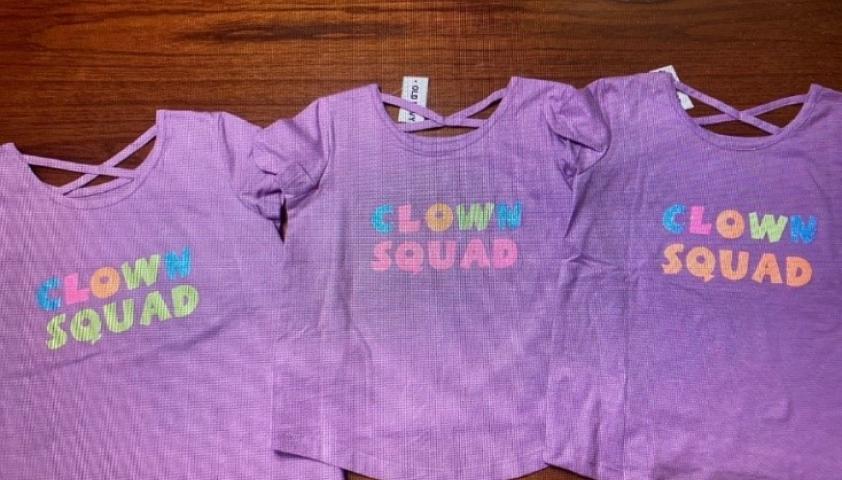Laughter, light and self-expression with Nurse Flutter
When you first arrive at Holland Bloorview, you might be surprised to see someone wearing bright rainbow socks and a red clown’s nose, playing a yellow ukulele.
That someone is Nurse Flutter, a butterfly trainer who comes from the island of “WishPonk.” Nurse Flutter has been filling the hallways with laughter and song since she first joined Holland Bloorview as a Therapeutic Clown back in 2015.
“I am a professionally-trained artist who has been performing for over 20 years on many different stages,” says Suzette Araujo, Nurse Flutter’s supervisor. “But working as a Therapeutic Clown has been one of my favourite jobs. It has been such a privilege to be a part of clients’ journeys.”
The Therapeutic Clown Program has been a fixture at Holland Bloorview since it began in 2005. Nurse Flutter and her clown partner, Caretaker Piccolo, can currently be found at the hospital three days a week, supporting both inpatient and outpatient clients.
As therapeutic clowns, their goal is to empower kids and youth of all abilities, provide a fun distraction during challenging times and spread humor and positivity.
“The clients are our bosses,” says Suzette. “Our goal as therapeutic clowns is to create a space of lightness, laughter and self-expression and to give clients control and leadership over their environment.”
Besides her trademark ukulele, Suzette uses physical (or slapstick) comedy, imaginary play, music and improvisation to interact with clients and families. As well as working with inpatients, therapeutic clowns are often asked to join outpatient appointments, like physiotherapy or the flu shot clinic.
“Through humor, passion and emotional expression, we try to connect with each other in moments of laughter. Sometimes, that means simply holding someone’s hand,” says Suzette.
Suzette’s approach is always changing based on individual needs and interests. And through monthly artistic sessions, she and the team explore new ways to improve their practice. At these sessions, they work on their improvisation skills, rehearse slapstick comedy routines and play music.
Each day, Suzette and her clown partner debrief their interactions with clients, families and staff. “We discuss our favorite moments and our least favorite moments, what worked and what didn’t work,” says Suzette.
The therapeutic clowns are important members of the care team, and collaborate with other practitioners on how to best support clients. And like other members of the care team, therapeutic clowns log their interactions with clients in the hospital’s electronic records system.
Being a therapeutic clown means being a part of a team of people who are dedicated to helping kids with disabilities and developmental differences reach their goals. Suzette likes to think of this team as The “Clown Squad.”
“While this one client was an inpatient, she would wear a t-shirt that said, ‘Clown Squad.’ Her mother made extras for her other inpatient friends and us,” explains Suzette.
The Clown Squad wore their shirts while walking or riding bikes around the hospital and during different therapies.
“It was a great way to provide distraction and joy while exercising. We were like a mini parade that would roam the hallways of Holland Bloorview,” Suzette recalls.
The Clown Squad is just one of countless cherished memories from Suzette’s time as a therapeutic clown.
“We are so fortunate to say that each interaction has a special place in our hearts,” says Suzette. “We hope we can empower kids and help them create fun and magical memories.”
